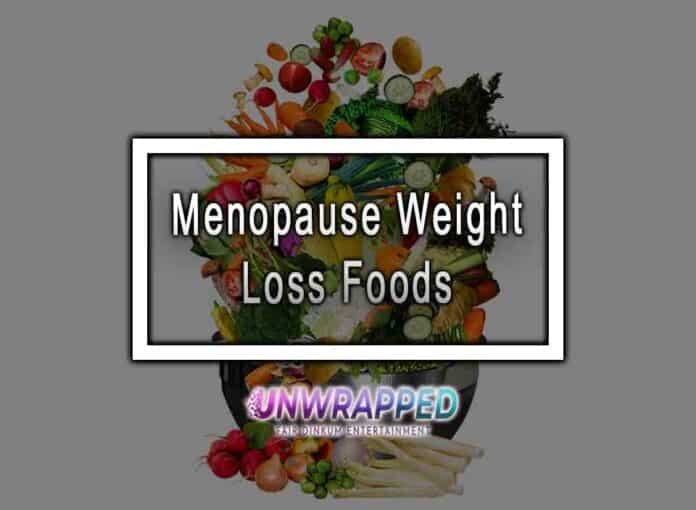Read on to find out more about foods that might help you lose weight during menopause. If you menstruate, you know that menopause will eventually arrive, along with its effects. These effects vary greatly from one woman to the next, but many women’s discontent with their own bodies and concerns about weight gain might be linked to this transformation!
We wrote an article on meals to reduce weight in menopause while thinking about this era. But before we go into food, let’s speak about menopause for a moment.
What Is Menopause?
Menopause, according to the World Health Organization, is when a woman spends 12 months (or a year) without menstruation due to no sickness or evident psychological explanation. This signifies the change from a reproductive to a non-reproductive state of being.
During this time, women’s levels of a hormone called oestrogen decline dramatically, and the following are the typical symptoms of menopause:
- Tiredness
- Headache
- Joint and muscle pain
- Tingling
- Weight gain
- Insomnia
- Irritability
- Heatwaves
- Palpitations
- Dizziness
Menopause is a sign that a woman is no longer reproductive, in addition to a decrease in hormones (mostly oestrogen). One of the primary effects of lowering this hormone is a slowing of metabolism, which leads to an increase in fat deposition, particularly in the abdominal area.
In addition, postmenopausal women have reduced amounts of leptin, the hormone that causes a sense of fullness. As a result, there is frequently a higher appetite for calorie-dense meals.
You must have figured out by now that this is the consequence of increased calorie intake and an increase in fat deposits in the abdomen area. Weight gain and, as a result, unhappiness with one’s own physical appearance.
Menopause And Food
Food has a significant part in climacteric (the transition time between fertile and non-fertile periods) and may help you feel better. Foods rich in nitric oxide and phytoestrogens, for example, might help compensate for the natural decline in the synthesis of these key hormones in women’s bodies: Nitric oxide aids in neuron transmission, and phytoestrogens are plant-derived chemicals that are extremely similar to nitric oxide. Estrogen is the sex hormone that is most closely linked to ovulation and feminine traits.
Alongside phytoestrogens and a balanced diet, growing evidence points to the gut microbiome as an important factor in metabolic changes during menopause. Small shifts in gut bacteria can influence inflammation and insulin sensitivity, which in turn affect how easily weight is gained or lost at this life stage. For practical, evidence-based guidance on targeted probiotics that may help restore gut balance and support menopausal weight management, see https://magnoliaweightloss.
Menopause Weight Loss Foods
Is there, after all, any food that might help you lose weight during menopause?
The process of losing weight entails consuming fewer calories than we exert. This is also true for postmenopausal women. We’ve previously seen that they must avoid creating a menu of meals to lose weight in menopause that are deficient in vital nutrients and that the body produces less during this time. The assistance of a professional is required at this time.
On the other hand, proteins get particular attention when it comes to weight reduction and muscle maintenance! Meat, fish, eggs, and legumes (beans, lentils, chickpeas) are all good sources of this mineral, which helps to prevent bone and muscle loss caused by hormone fluctuations.
Fiber-rich meals may also help you lose weight during menopause! Fiber is necessary for a variety of bodily functions (the most well-known of which is assisting us in going to the toilet on a regular basis) and helps us feel full. To put it another way, fiber fills us up without making us eat as much.










